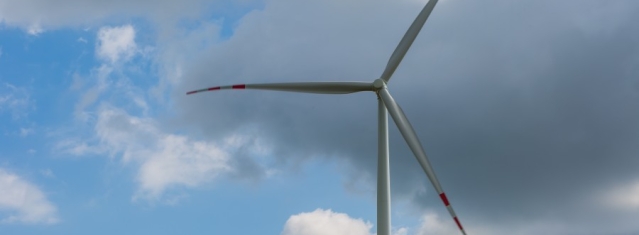Business
Uncertainty in the Power Purchase Agreement Market
Uncertainty in the PPA Market

USPA NEWS -
Power Purchase Agreements (PPAs) have become popular for corporations to support renewable energy projects and reduce carbon emissions. However, PPAs now face uncertainty due to global supply chain disruptions and changing regulations. Find out the challenges and opportunities that off-takers and generators face in the evolving PPA landscape.
Power Purchase Agreements (PPAs) are contracts between energy generators and off-takers, typically corporations or organizations, in which the off-taker agrees to purchase a set amount of electricity generated by the energy generator. PPAs have become a popular tool for corporations and organizations to support the development of renewable energy projects and reduce their carbon emissions.
However, the current landscape for PPAs is facing significant uncertainties, opportunities, and challenges. One key uncertainty is the impact of global supply chain disruptions on the availability and cost of renewable energy technology. For example, the U.S. is currently experiencing a shortage of solar panels due to legislation aimed at cracking down on labor abuses in China, which has disrupted imports and pummeled solar deployment in the country.
However, the current landscape for PPAs is facing significant uncertainties, opportunities, and challenges. One key uncertainty is the impact of global supply chain disruptions on the availability and cost of renewable energy technology. For example, the U.S. is currently experiencing a shortage of solar panels due to legislation aimed at cracking down on labor abuses in China, which has disrupted imports and pummeled solar deployment in the country.
This presents both challenges and opportunities for PPA off-takers and generators. On the one hand, supply chain disruptions and resulting price increases can make it more difficult for off-takers to meet their renewable energy goals and for generators to secure financing for their projects. On the other hand, the increased focus on ensuring supply chain transparency and ethical sourcing presents an opportunity for off-takers to differentiate themselves and signal their commitment to sustainability.
Another uncertainty in the PPA landscape is the changing regulatory environment. In the U.S., the Biden administration has set ambitious clean energy goals, and Congress has passed legislation offering tax incentives and funding for renewable energy projects. This can create opportunities for PPA off-takers and generators to take advantage of favorable policies and support the growth of the renewable energy industry.
Another uncertainty in the PPA landscape is the changing regulatory environment. In the U.S., the Biden administration has set ambitious clean energy goals, and Congress has passed legislation offering tax incentives and funding for renewable energy projects. This can create opportunities for PPA off-takers and generators to take advantage of favorable policies and support the growth of the renewable energy industry.
However, the regulatory environment can also present challenges. For example, the aforementioned supply chain disruptions have resulted in increased scrutiny from U.S. Customs, which can delay the approval of PPA projects. In addition, the development of renewable energy projects can face challenges related to permitting and access to transmission grids.
Overall, the landscape for PPAs is complex and rapidly evolving. Off-takers and generators must navigate supply chain disruptions, changing regulations, and other challenges in order to effectively support the growth of renewable energy and meet their sustainability goals.
Overall, the landscape for PPAs is complex and rapidly evolving. Off-takers and generators must navigate supply chain disruptions, changing regulations, and other challenges in order to effectively support the growth of renewable energy and meet their sustainability goals.
Power Purchase Agreements Ppas Renewable Energy Supply Chain Disruptions Changing Regulations Off-takers Generators Carbon Emissions Sustainability Biden Administration Clean Energy Tax Incentives Funding U.s. Customs Permitting
Liability for this article lies with the author, who also holds the copyright. Editorial content from USPA may be quoted on other websites as long as the quote comprises no more than 5% of the entire text, is marked as such and the source is named (via hyperlink).





